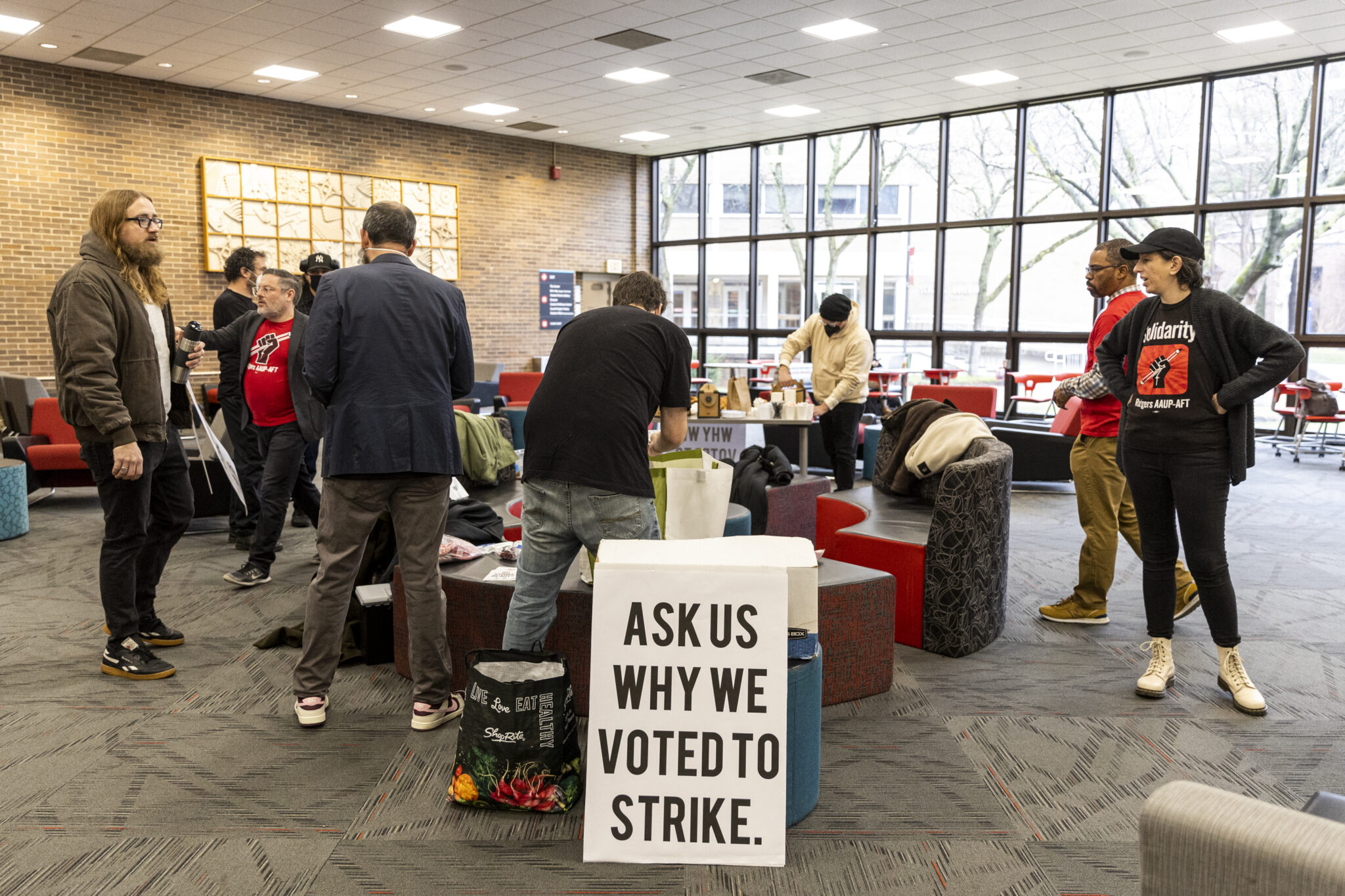
Sunah Chang is a student at Harvard Law School.
In today’s news and commentary: CSU faculty reach a tentative deal, Democrats introduce bill to increase taxes on CEO salaries, and Florida advances bills that would loosen child labor protections.
After one day of striking, California State University faculty have reached a tentative deal, which will immediately raise salaries by 5 percent (applied retroactively from July 1, 2023) and will increase salaries by another 5 percent on July 1, 2024. The deal will also raise the salary of lowest-paid faculty members (currently set at $54,360) by $3,000 and increase paid parental leave from six weeks to 10 weeks. The deal comes after eight months of negotiations between the California Faculty Association and university management and marks a close to the first strike mobilizing faculty from all of CSU’s 23 campuses.
In Washington, Bernie Sanders and a group of Democrats have introduced the Tax Excessive CEO Pay Act, which seeks to raise taxes on companies that pay their highest-paid executives at least 50 times more than what they pay their typical worker. Under the Act, the tax penalty levied against companies would increase as the CEO-to-worker salary ratio increases. Companies that pay their top executives between 50 to 100 times more than their typical workers would receive a tax penalty of 0.5 percent whereas companies that pay their top executives more than 500 times their typical workers would face the maximum tax penalty of 5 percent.
According to a press release by Bernie Sanders, the Act is projected to raise around $150 billion over 10 years and seeks to mitigate the growing wage disparities between corporate executives and workers. The bill has won endorsements from major worker-side advocacy groups and unions, including AFL-CIO, International Brotherhood of Teamsters, and Service Employees International Union. However, the bill will likely face an uphill battle in the narrowly-Democratic Senate and the Republican-controlled House of Representatives.
Turning to Florida, the state legislature is pushing forward two bills that would weaken child labor protections in the state. The first bill, which was passed by a state senate committee last week, seeks to allow 16- and 17-year-olds to work on construction projects in residential neighborhoods. The second bill, which is moving through the state house legislature committee, seeks to allow 16- and 17-year-olds to work up to 40 hours a week (above the current maximum of 30 hours a week) even when school is in session and would eliminate child work break protections for 16- and 17-year-olds.
Experts have attributed these lenient child labor bills to labor shortage issues in Florida, which have been exacerbated by the state’s increased crackdown on undocumented immigrant workers. The proposed bills have prompted massive pushback from policy and advocacy groups. Over 100 organizations have signed onto a letter by the Florida Policy Institute urging the state legislature to reject the two bills. Youth activists have also organized rallies to oppose the bills.






Daily News & Commentary
Start your day with our roundup of the latest labor developments. See all
January 22
Hyundai’s labor union warns against the introduction of humanoid robots; Oregon and California trades unions take different paths to advocate for union jobs.
January 20
In today’s news and commentary, SEIU advocates for a wealth tax, the DOL gets a budget increase, and the NLRB struggles with its workforce. The SEIU United Healthcare Workers West is advancing a California ballot initiative to impose a one-time 5% tax on personal wealth above $1 billion, aiming to raise funds for the state’s […]
January 19
Department of Education pauses wage garnishment; Valero Energy announces layoffs; Labor Department wins back wages for healthcare workers.
January 18
Met Museum workers unionize; a new report reveals a $0.76 average tip for gig workers in NYC; and U.S. workers receive the smallest share of capital since 1947.
January 16
The NLRB publishes its first decision since regaining a quorum; Minneapolis labor unions call for a general strike in response to the ICE killing of Renee Good; federal workers rally in DC to show support for the Protecting America’s Workforce Act.
January 15
New investigation into the Secretary of Labor; New Jersey bill to protect child content creators; NIOSH reinstates hundreds of employees.